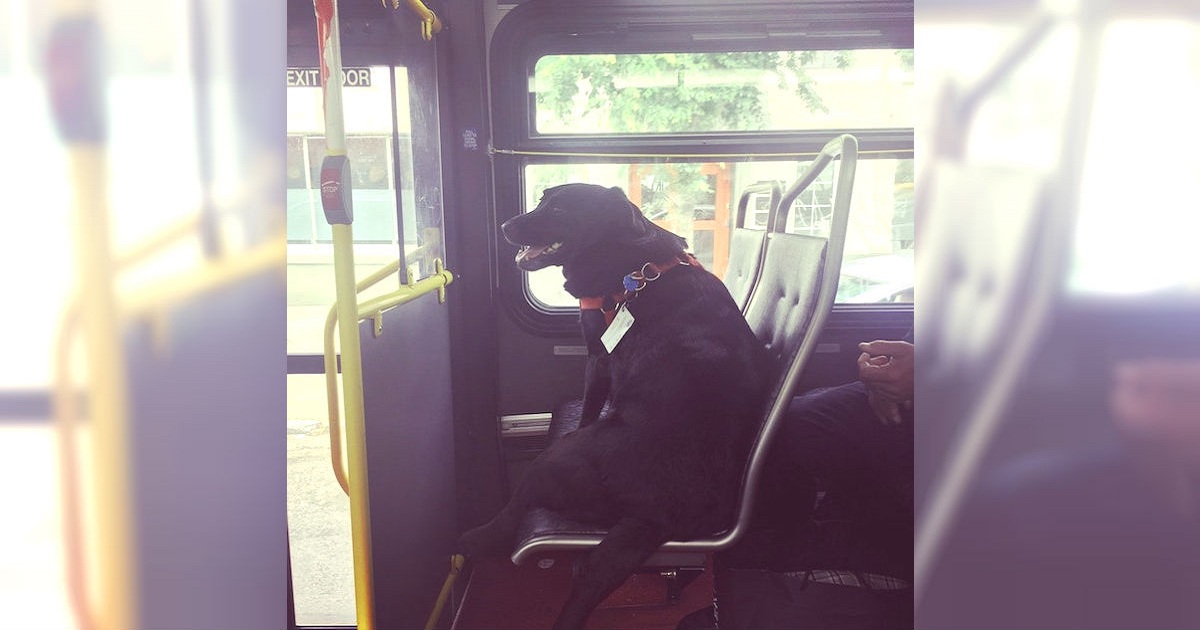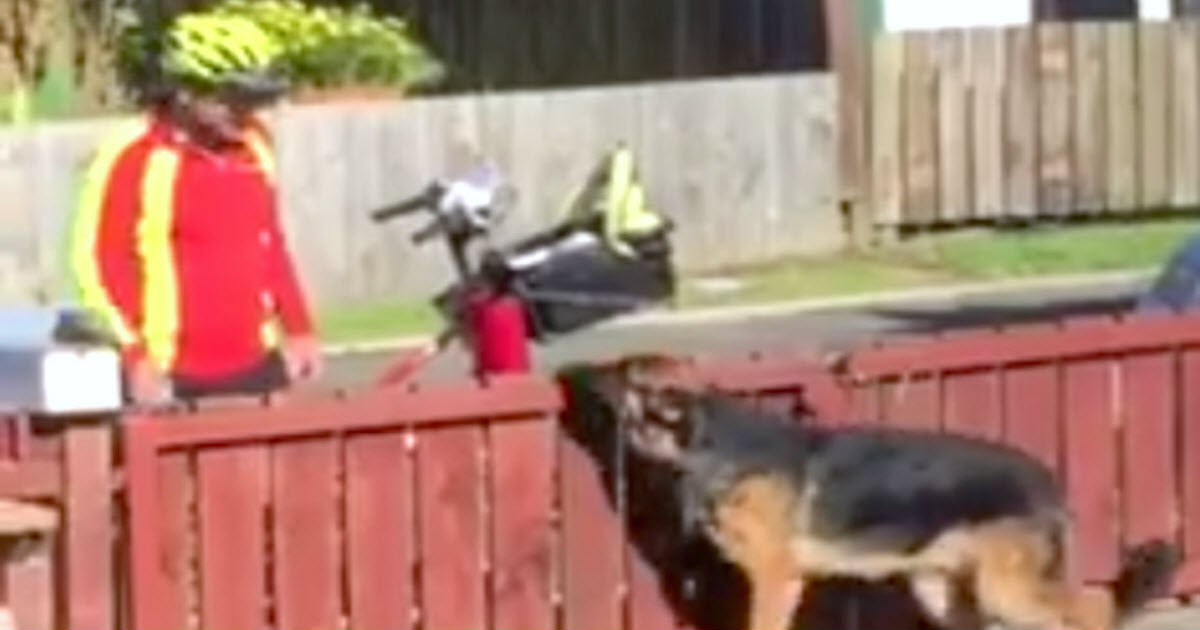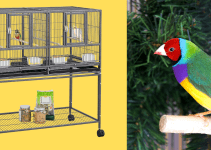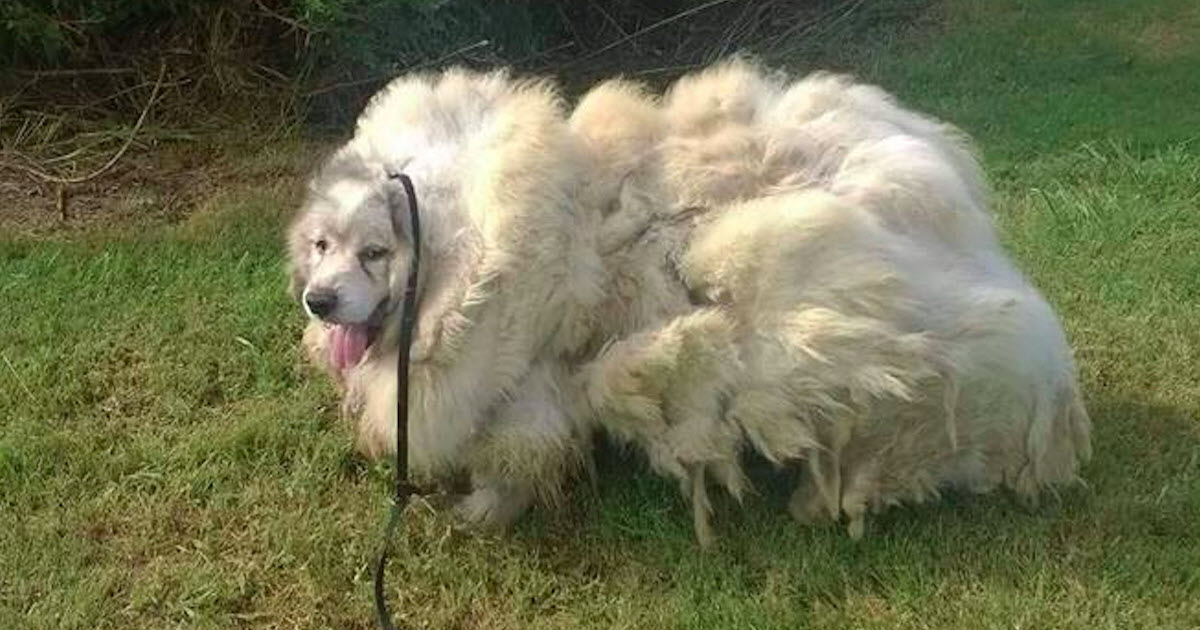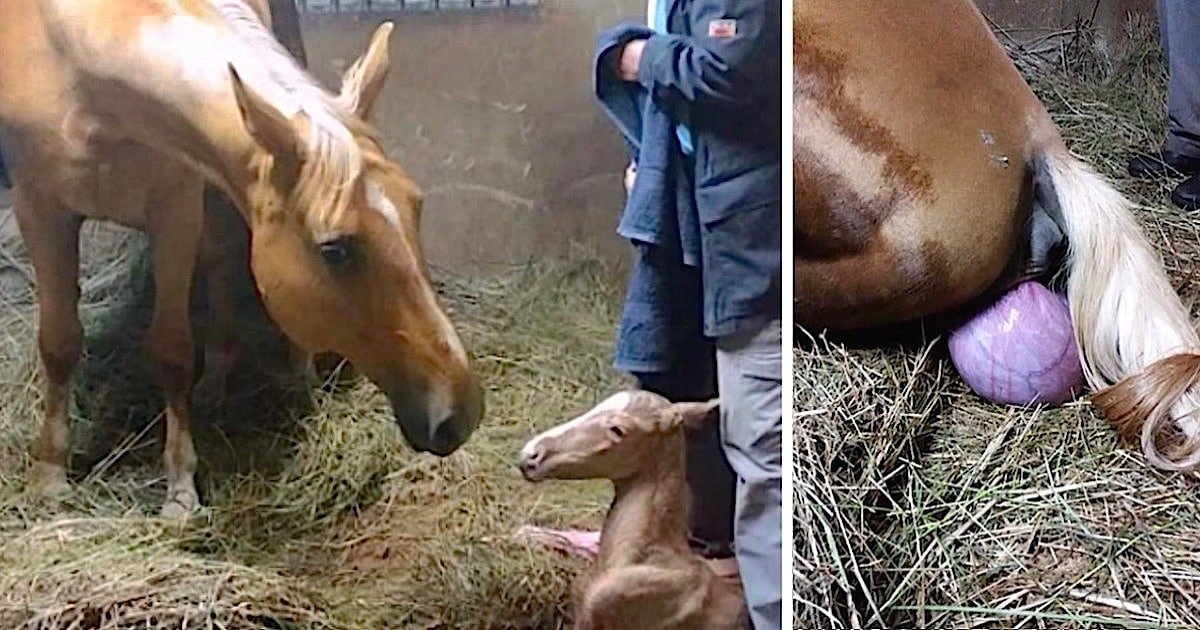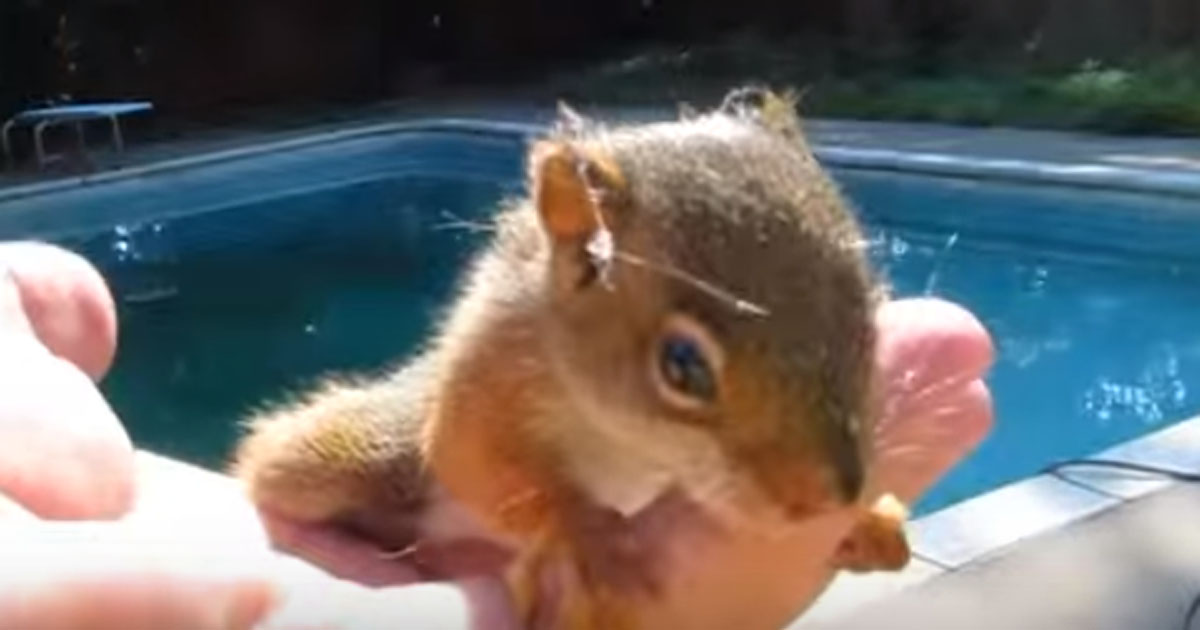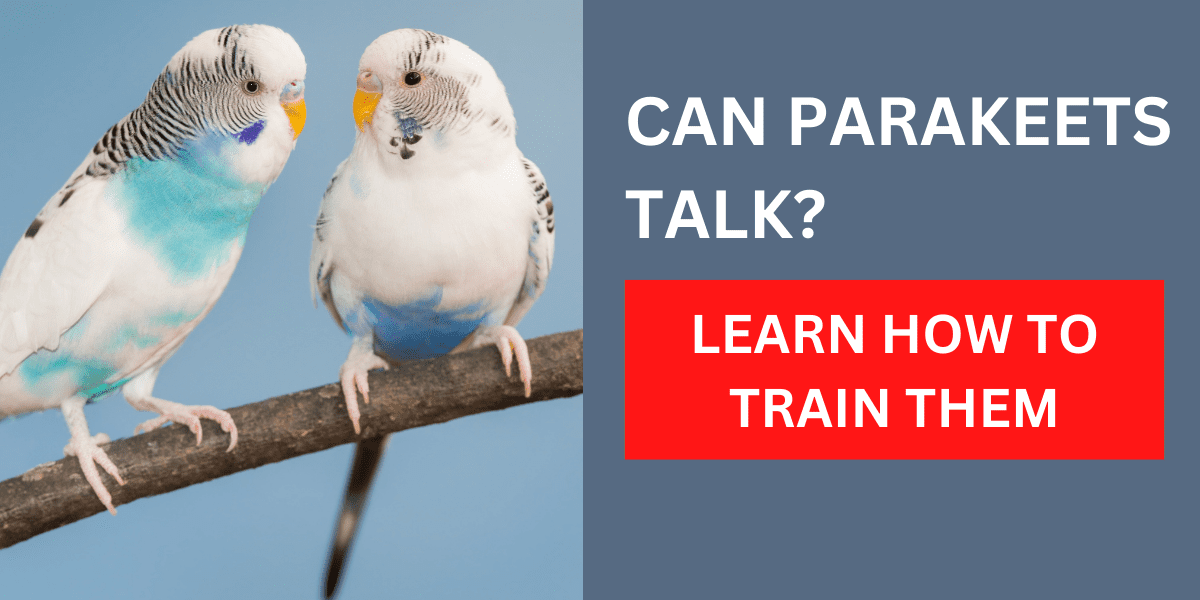
Many parakeet owners want to know if their pets can talk. The answer is yes, but it takes some training! With some patience and practice, you’ll be amazed at the words your parakeet can learn to say. Here’s what you need to know about training your parakeet to talk.
Can Parakeets Talk?
The answer is yes, sort of. Parakeets are capable of mimicry, so they can learn to repeat words and sounds that they hear often. However, they aren’t the same thing as proper speech. Actual speech requires an understanding of language, and parakeets don’t have the cognitive ability to understand human language the way we do.
That said, parakeets are very social creatures, and their mimicry can be a way of bonding with their favorite human companions. So even though your parakeet might not be able to hold a conversation with you, there’s still a lot of value in spending time talking (or singing) to them.
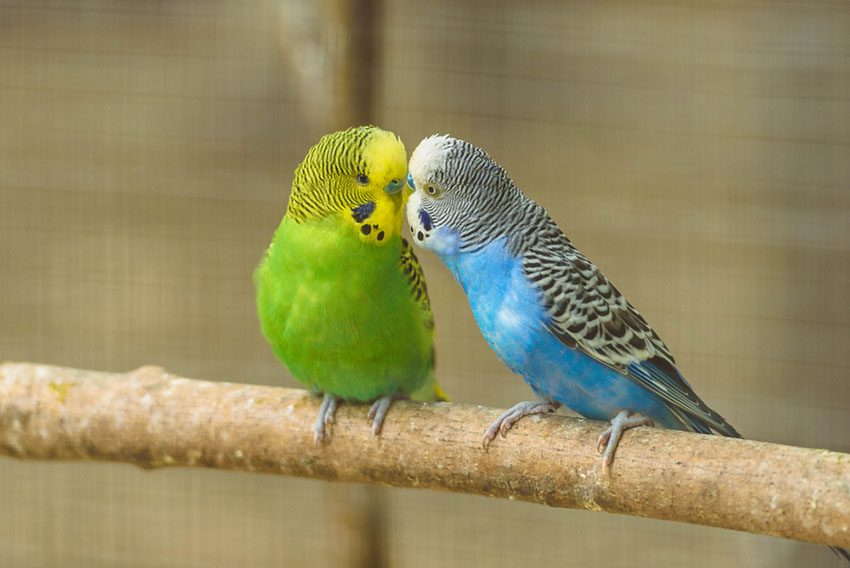
Why Do Parakeets Mimic Speech?
Parakeets rely heavily on vocal communication to interact with other flock members as social animals. In the wild, they use a diverse repertoire of chirps, squeaks, and screeches to communicate everything from warnings and alarms to invitations to mates.
In captivity, however, parakeets don’t have other birds to talk to—so instead, they often turn to their human companions for social interaction. That’s why you might find your parakeet mimicking the sounds of your voice, especially if you talk to them often.
While it’s technically accurate that all birds can mimic human speech (a talent aided by their anatomy), parakeets are particularly good at it because they’re highly social creatures with a natural propensity for vocalization. So if you’ve ever wondered why your bird seems so intent on repeating everything you say, now you know!
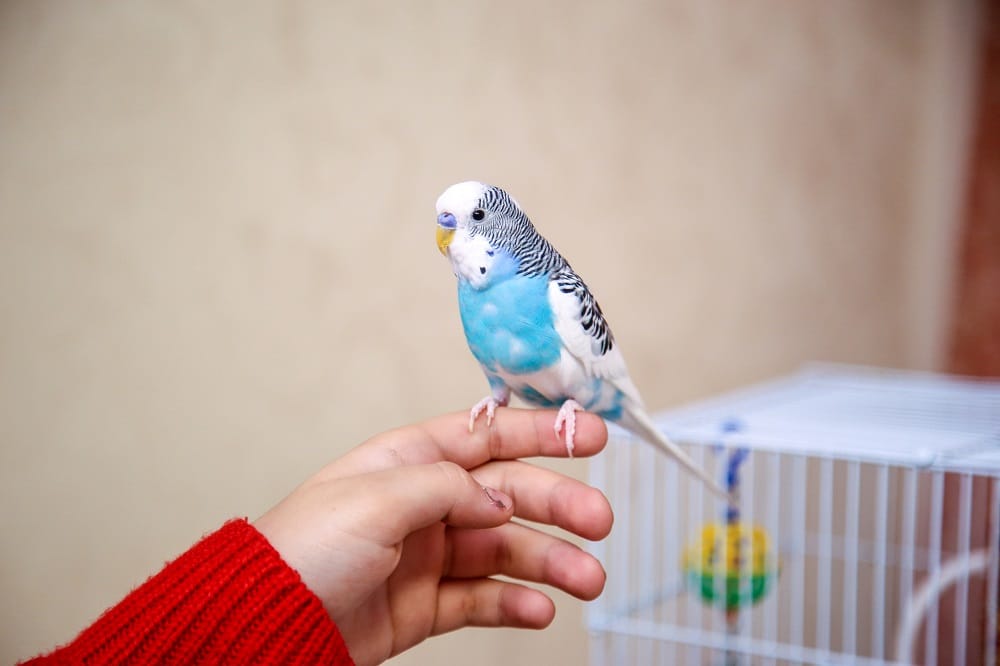
Training Your Parakeet to Talk
1. Start with simple words and phrases. The first step is to get your parakeet accustomed to hearing your voice. Sit near their cage and talk to them in a soft, comforting tone. Next, begin with simple words and phrases like “hello,” “goodbye,” or “come here.” Repeat these words often, and eventually, your parakeet will begin to mimic your speech.
2. Say the word or phrase repeatedly whenever you are around your parakeet. It’s essential to be consistent, so your parakeet can learn the word or phrase.
3. Reward your parakeet with a treat when it correctly says the word or phrase. Like all animals, parakeets respond well to positive reinforcement. So when they hear a word or phrase you’ve been working on, offer them a small treat as a reward for their efforts. This will help them to associate the desired behavior with a pleasant consequence, making them more likely to repeat it in the future.
4. Be patient! Don’t get discouraged if your parakeet isn’t picking up new words as fast as you want them to. They’ll get there eventually! It may take some time for your parakeet to learn the word or phrase, but if you are consistent with your teaching, chances are good that they will get it eventually.
5. Try using a mirror if your parakeet isn’t picking up the new word or phrase after several weeks of trying. Place a mirror in front of your parakeet’s cage and say the word or phrase while looking at yourself in the mirror. Often, seeing another bird “talking” will encourage your parakeet to start talking too!
6. Don’t give up if your parakeet still isn’t talking after using a mirror. Some birds are just naturally more prone to talking than others. However, even those “quiet” types can usually be taught at least a few words or phrases with enough time and patience.
7. Join a local bird club or group if you want to meet others who own talking birds. These groups often have helpful tips and tricks for teaching birds to speak that you may not have thought of on your own.
8. Switch things up. Just like humans, birds can get bored quickly. To keep your parakeet interested in learning new words, mix up your routine occasionally and try using different tones of voice or adding hand gestures along with the terms.
9. Get creative! There are endless possibilities when it comes to teaching your parakeet to talk. Once you’ve mastered the basics, try moving on to more challenging words or whole sentences. You could even teach your bird to whistle or sing a song!
10. Have fun! Training your parakeet to talk should be a fun experience for both you and your birdie friend. Enjoy spending time with your pet, and don’t get frustrated if things aren’t moving as quickly as you would like them to—Rome wasn’t built in a day, after all!
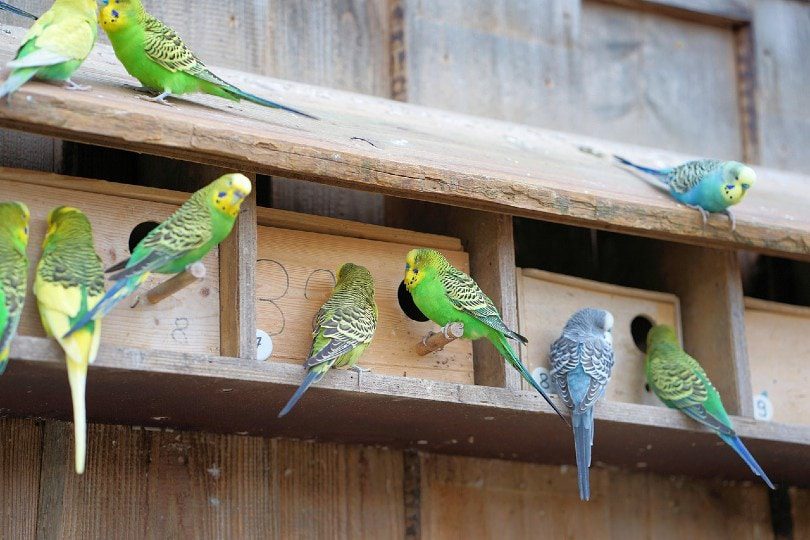
Dos and Don’ts When Training Parakeets
Do’s:
- Establish trust: The first step in training your parakeet is to earn its trust. Spend time sitting near the cage every day and talking to your bird in a soft, gentle voice. Once your bird becomes comfortable with your presence, you can begin offering treats through the cage bars.
- Start small: When you’re first starting, it’s essential to keep your expectations low. Train for short periods (5-10 minutes) and focus on one trick at a time. As your bird gets more comfortable with the process, you can increase the duration and complexity of the teaching tricks.
- Be patient: Parakeets are intelligent birds but still need learning time. Be patient with your bird and don’t get frustrated if it takes a while for it to catch on. The more calm and relaxed you are, the better your bird will respond to the training.
- Use positive reinforcement: Parakeets respond best to positive reinforcement, so whenever your bird does something you want it to do (like stepping up on your finger), be sure to give it lots of praise and treats.
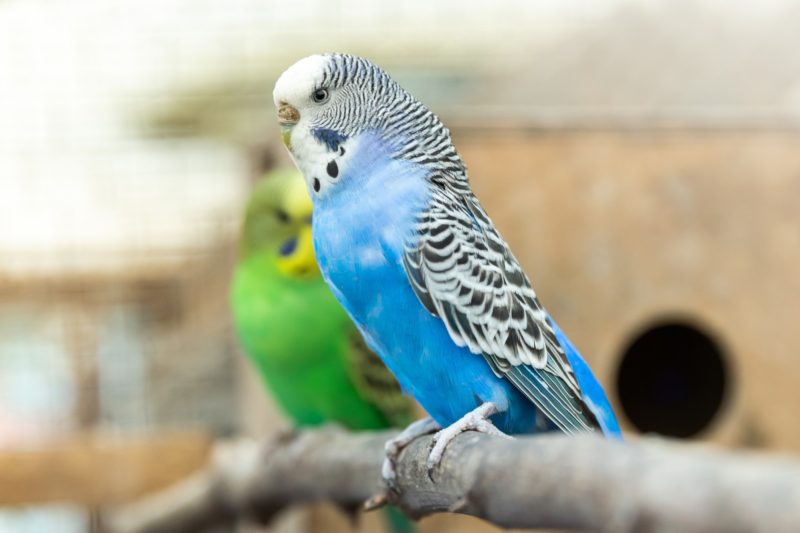
Don’ts:
- Don’t use negative reinforcement: Yelling at or hitting your bird will only make it scared of you and less likely to want to learn tricks. If you make a mistake during training, start over from the beginning and try again.
- Don’t overload your bird: As we mentioned, starting small when first training your bird is essential. If you try to teach too much at once, you’ll overwhelm your bird and make the process more difficult for both of you.
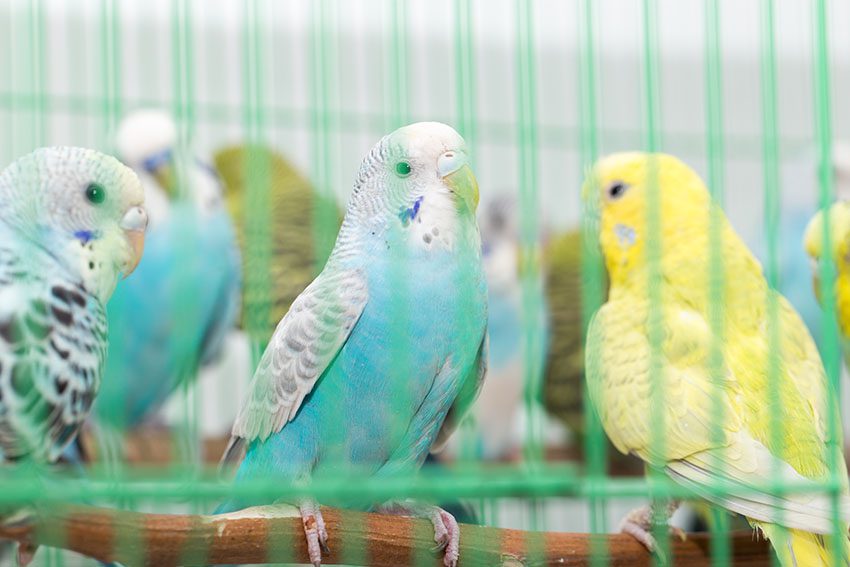
How Well Do Parakeets Talk?
Parakeets aren’t going to win any awards for their conversational skills anytime soon, but they are able to mimic some human sounds pretty accurately. Most parakeets will be able to learn to say their name, as well as a few other common words or phrases such as “hello,” “goodbye,” and “I love you.” More advanced parakeets might be able to learn short sentences, but this is relatively rare.
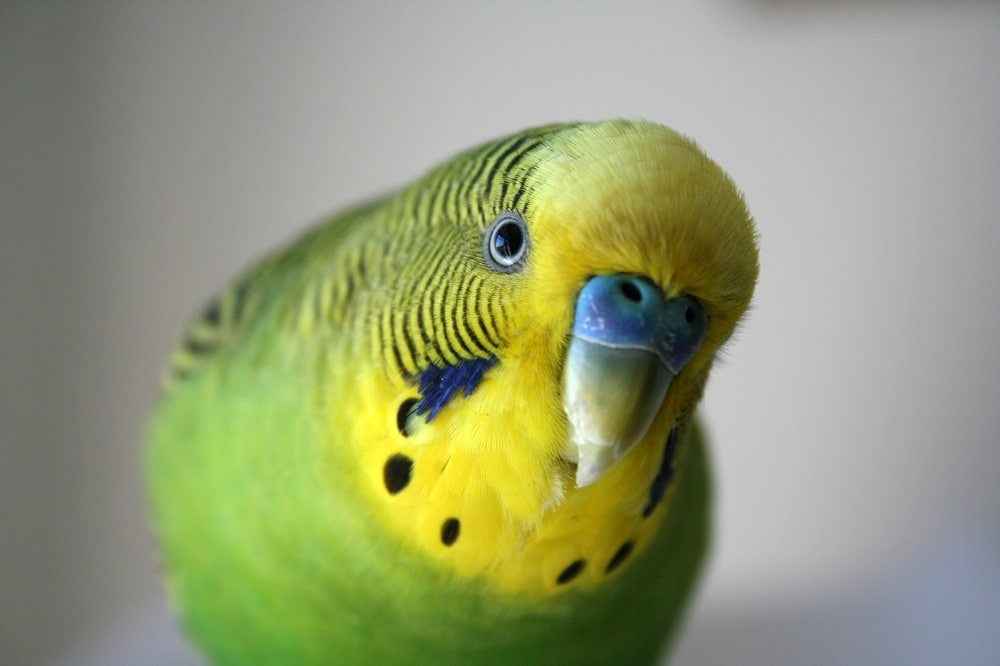
Common Sounds of Parakeets
The Beep
A soft “beep” is a friendly greeting between two parakeets or between a bird and his human companion. You’ll often hear this sound when you first enter the room or approach the cage.
The Chatter
Parakeets chatter when they’re excited or happy. This high-pitched sound is similar to laughter and may even be accompanied by head bobbing. Chattering generally indicates that your bird is content and enjoying life.
The Scream
A loud, piercing scream is a sign that something is wrong. For example, your parakeet may scream if he’s frightened, injured, or in pain. If you hear this sound, it’s essential to find out what’s wrong and correct the situation right away.
The Cough
A hacking cough may indicate that your bird has an infection or respiratory illness. If you hear this sound, take your parakeet to the vet as soon as possible for treatment.
The Whistle
Some birds learn to whistle entire songs while others only know how to make short notes. Either way, whistling is usually a sign that your bird is happy and wants attention.
The Squawk
A sharp squawk is another sound that indicates displeasure. For example, your parakeet may squawk if he doesn’t like his food, if he’s uncomfortable, or if he wants you to leave him alone.
The Kisses
Soft smooching sounds usually mean “I love you.” Your bird may make kisses towards you or another bird in the household as a sign of affection.
The Click
A single click or series of clicks is often used as an alarm call, especially by wild birds. In captivity, clicks may also be used to get your attention or as part of a mating call.
The Gurgle
A gurgling noise usually means your bird is hungry and wants you to feed him. This soft cooing noise differs from begging screams, which indicate genuine distress.
The Chirp
One of the most common sounds made by parakeets is the chirp. This cheerful-sounding noise is generally used to greet other birds or humans. However, it can also be a sign of excitement or happiness.
The Trill
Trilling is another sound made by parakeets that has a positive connotation. This sound is generally used as a sign of contentment or relaxation. If your parakeet is trilling while being held or petted, it’s a good sign that they are happy and comfortable.
What Makes Parakeet Talk?
Environment: One of the things that can influence how much your parakeet talks is its environment. If your parakeet is in a quiet room by itself, it’s not likely to talk as much as if it were in a room with other people or animals. Parakeets are social birds, so they enjoy being around others. The more activity there is in the room, the more likely your parakeet is to chime in.
Age: Another factor influencing how much your parakeet talks is its age. Juvenile parakeets (those under one year old) are usually the most vocal since they’re still learning to communicate. As they get older, they may start to talk less as they become more comfortable with their environment and place in the pecking order. However, some older parakeets can be pretty chatty – it really varies from bird to bird.
Breed: The breed of parakeet can also play a role in how much it talks. Some species, like the budgerigar (or “budgie”), are known for being particularly vocal. Other breeds, like the African grey parrot, are not as prone to talking but can still learn a few words or phrases if they’re exposed to them regularly. Ultimately, it depends on the individual bird – there’s no guarantee that a particular breed will be chatty or quiet.
Comfortable: Parakeets are more likely to start talking if they feel safe and comfortable in their surroundings. This means that if you’ve just brought your parakeet home from the pet store, it’s unlikely they will start talking immediately. It takes time for them to adjust to their new environment and feel comfortable enough to start vocalizing.
Other birds: In the presence of other birds in the vicinity (whether in the same room or outside), your parakeet will likely start chirping away to communicate with them. This is especially true if your parakeet is in pairs; they generally like to stay close to their mate and will chirp away if they’re separated.
Enough Attention: This could be in the form of human conversation, being spoken to in a soft voice, or even being played music. If you want your parakeet to start talking, try spending quality time with them daily.
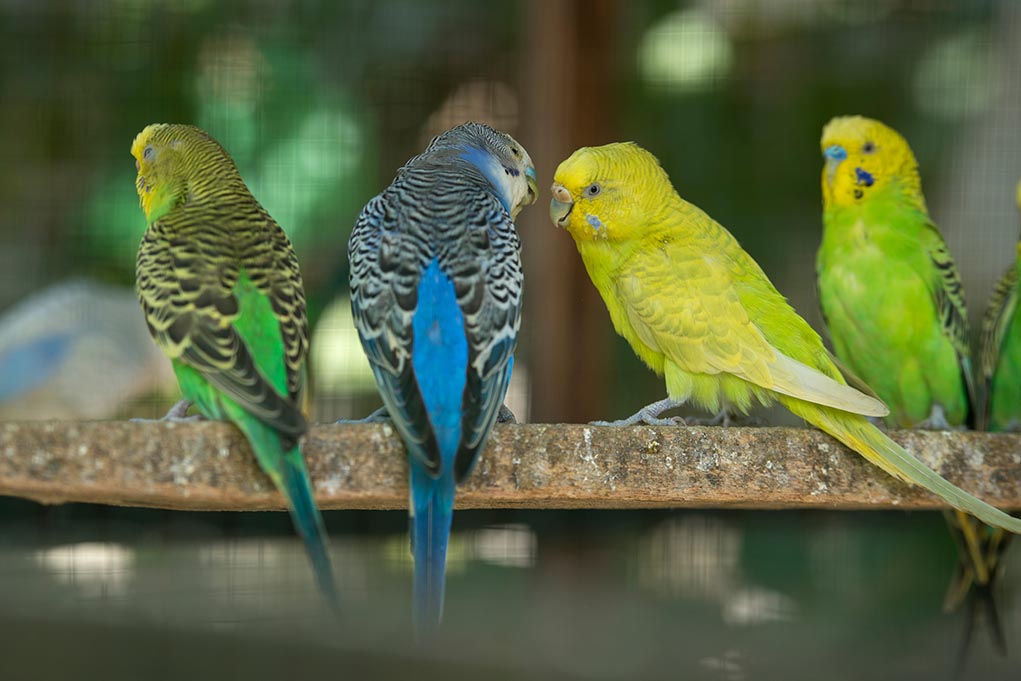
How Long Does It Usually Take for My Parakeet to Learn to Talk?
Parakeets are social birds; in the wild, they flock together and chatter away. However, in captivity, their human companions take the place of their flockmates. For this reason, it’s crucial that if you want your parakeet to learn to talk, you provide them with plenty of opportunities for socialization.
This means spending time with your bird daily, talking to them in a soft voice, and letting them out of their cage regularly so they can stretch their wings and explore.
It’s generally accepted that male parakeets are better at talking than females and that hand-raised birds are more likely to speak than those raised by their parents. With that said, it’s still possible for a female or wild-caught parakeet to learn to talk; it may take a little longer.
The average parakeet will start trying to mimic human speech around six months of age. However, a parakeet can take up to a year to start stringing words together into sentences. As a result, some parakeets never learn to talk, while others quickly pick up an extensive vocabulary.
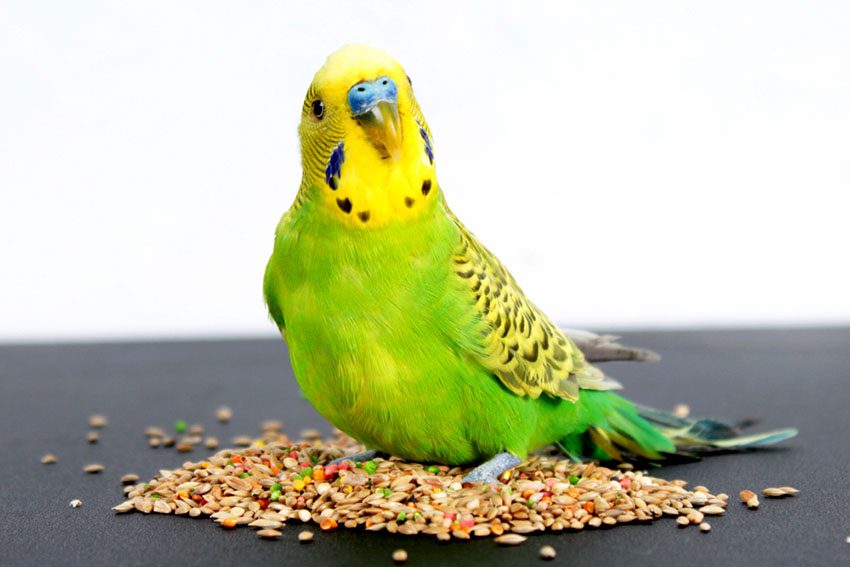
There is no one correct answer when it comes to how long it takes for a parakeet to learn to talk. It depends on the individual bird and the time and effort you’re willing to teach them.
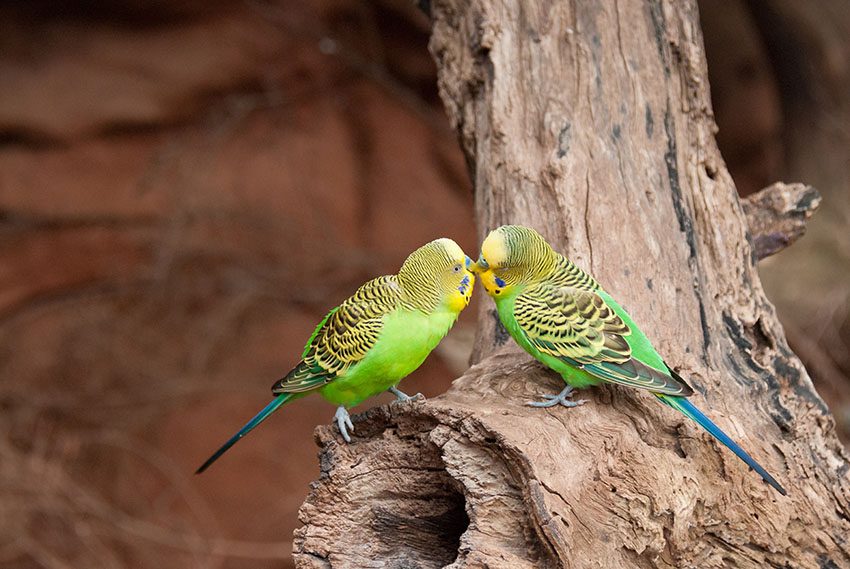
Final Thoughts
Training your parakeet to talk can be a fun and rewarding experience. It takes time, patience, and practice, but it’s possible. Remember that some parakeets are better at talking than others and that male birds typically learn faster than females. You’ll be amazed at the words your parakeet can learn to say with a little effort.
Frequently Asked Questions
What can parakeets say?
Easy to Learn Words
Most parakeets find it simple to speak words like “cute,” “sweet,” and “kiss.” More challenging would be words like “ball” or expressions like “Hi, friend.” Teach short, simple words since lengthier ones are difficult for parakeets to remember and maintain in sequence.
Can all parakeets learn to talk?
Although many parakeets are unable to speak, trying is enjoyable! Then use more difficult words or sentences. You can go on to whole sentences when your bird has learned a few words. While your parakeet is calm and ready to focus on you, repeat the sentence, just like you would when teaching it new words.
Can you teach a budgie parakeet to talk?
Female parakeets often don’t learn to communicate, while male budgies are relatively capable of doing so. Cockatiels also fit this description. In the majority of other parrot species, both sexes are capable of speaking. When a budgie or parakeet begins to say, it frequently imitates linguistic intonation by muttering the words.

